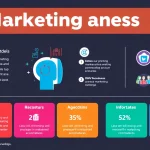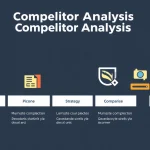Understanding AI Search
As technology evolves, so too does the way we interact with information. Traditional search engines have served us well for decades, but the advent of artificial intelligence has fundamentally transformed information retrieval. AI search systems are at the forefront of this evolution, combining advanced algorithms and machine learning to provide users with more relevant, contextually aware results.
What is AI Search?
AI search refers to the incorporation of artificial intelligence techniques into search algorithms to enhance the retrieval of information and streamline the overall search experience. Unlike traditional keyword-based search engines that rely primarily on databases and indexing, AI search systems leverage natural language processing (NLP), machine learning, and vast data sets to understand user queries in more depth. By analyzing the context, intent, and nuances of a user’s query, these systems deliver more relevant and personalized results, often predicting user needs even before they are voiced.
The Evolution of Search Technologies
The progression of search technologies can be traced through several key phases:
- Keyword-Based Search: Early search engines operated on strict keyword matching, often yielding results that were relevant in terms of keywords but lacked real understanding or contextual relevance.
- Semantic Search: The introduction of semantic search moved beyond mere keywords, using algorithms that interpreted the meaning behind queries, enhancing the relevance of results.
- AI Integration: Today, AI search engines utilize advanced machine learning models to analyze and predict user behavior, adjusting their results based on ongoing interactions, historical data, and user profiles.
Key Components of AI Search Systems
Understanding the core components of AI search systems is crucial for grasping how they operate and provide enhanced results. Key components include:
- Natural Language Processing (NLP): This allows AI search engines to comprehend human language, interpreting queries and the context surrounding them.
- Machine Learning: AI search utilizes machine learning models to continuously improve the accuracy of results over time by learning from user interactions.
- User Behavior Analysis: By analyzing past user behaviors and preferences, AI search can tailor results to match individual needs and search patterns.
Benefits of AI Search
Efficiency in Information Retrieval
One of the most notable benefits of AI search is its ability to improve the efficiency of information retrieval. Because AI search engines understand context and intent, they minimize the time users spend sifting through irrelevant results. This efficiency is particularly valuable in sectors requiring quick access to specific information, such as legal research, healthcare, and academic studies.
Personalization and User Experience
AI search systems excel at creating personalized experiences. By leveraging user data, they can deliver results that are tailored to individual preferences and previous interactions. For instance, platforms like Google Gemini and Microsoft’s Copilot provide suggestions that resonate with users’ search histories, offering results that seem intuitive and immediate.
Data Processing Capabilities
AI search can handle vast amounts of data efficiently. This capability allows it to integrate information from diverse sources, including text, images, and more, producing comprehensive results that standard search engines might struggle to compile. As a result, users can obtain a more holistic view of topics, driven by varied input forms.
Challenges and Limitations of AI Search
Data Privacy Concerns
With the personalization of search results comes the challenge of data privacy. Users are often uneasy about how their data is being used, leading to demands for more transparency from service providers. Companies must navigate these concerns carefully, implementing robust privacy measures and clearly communicating how user data is utilized in AI search systems.
Accuracy and Reliability Issues
Despite their capabilities, AI search engines can sometimes produce inaccurate or biased results, primarily due to the data they are trained on. If a model is trained on flawed data, it may propagate those flaws in search results. Continuous refinement and updating of training datasets are essential to address these issues and ensure the reliability of outputs.
Understanding Context and Nuances
Although advancements in NLP and machine learning have improved contextual understanding, AI search systems can still struggle with nuances in human language. Sarcasm, idioms, and culturally specific references can lead to misunderstandings, resulting in less relevant results. Ongoing research into language semantics aims to mitigate these challenges over time.
Implementing AI Search in Business
Integrating AI Search Solutions
Businesses looking to adopt AI search solutions should begin by identifying their specific needs and goals. Integration often involves a few key steps:
- Assess Current Infrastructure: Evaluate existing systems and tools to determine how AI search can plug into current workflows.
- Choose the Right AI Search Platform: Select an AI search engine that aligns with business objectives, such as improved data retrieval or enhanced user experience.
- Customize and Train the System: Customize the AI solution based on industry-specific requirements, and train the system using relevant data to improve tailored search results.
Case Studies: Businesses Leveraging AI Search
Numerous companies have successfully integrated AI search solutions into their operations:
- Healthcare Sector: A leading hospital used AI search to streamline patient records retrieval, significantly reducing the time staff spent on administrative tasks.
- E-commerce: An online retailer implemented AI search to enhance product discoverability, resulting in a substantial increase in sales and customer engagement.
Best Practices for Implementation
Successful implementation of AI search requires adherence to several best practices:
- User-Centric Design: Prioritize the user experience by designing interfaces that are intuitive and user-friendly.
- Continuous Training: Regularly update and retrain AI models to improve accuracy and relevancy based on the evolving data landscape.
- Monitor Performance: Continuously monitor search performance and user feedback to identify areas for enhancement.
The Future of AI Search
Trends to Watch in AI Search Development
The future of AI search promises several exciting developments:
- Multimodal Search Capabilities: Future search engines are expected to seamlessly integrate textual and visual data for even more comprehensive results.
- Voice Search Integration: As voice-activated assistants become more prevalent, AI search will evolve to understand and process voice queries more effectively.
- Ethical AI Search: Greater focus on developing ethical frameworks to ensure AI search systems are transparent, fair, and accountable.
Predictions for AI Search Technologies
Industry experts predict that AI search technologies will increasingly incorporate advanced elements such as emotional intelligence and context-awareness. This could enable systems to respond to user emotions or situational needs, further refining the search experience.
Preparing for the AI-Fueled Search Landscape
As businesses prepare for a future dominated by AI-driven search technologies, they should consider the following steps:
- Invest in Training: Equip staff with knowledge about AI technologies and their implications for business operations.
- Adapt to Change: Foster a culture that embraces technological change, enabling smoother transitions to AI-powered systems.
- Engage with Stakeholders: Include stakeholders in the decision-making process to ensure alignment with organizational goals and user expectations.
In conclusion, the evolution of AI search marks a significant leap forward in how information is retrieved and interacted with. While challenges remain, particularly regarding data privacy and accuracy, the benefits of AI search—efficiency, personalization, and advanced data processing—offer compelling reasons for businesses and individual users to engage with this technology. As advancements continue, preparing for an AI-driven search landscape will be essential for staying competitive and meeting user needs effectively.


